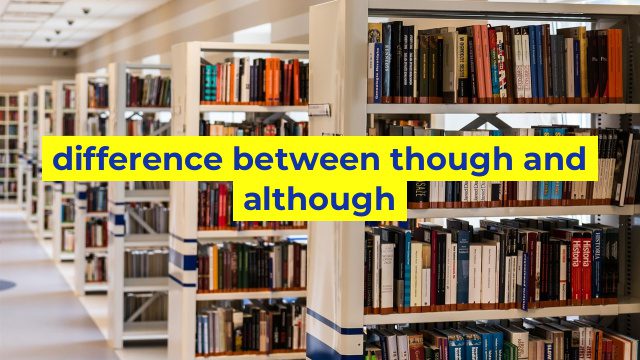The Difference Between Though and Although
Introduction
The English language is rich with words that are similar in spelling or meaning, yet have subtle differences. Two such words are “though” and “although”. While they may seem interchangeable at first, there are distinct differences between the two that can affect the meaning of a sentence.
Definition and Usage
“Though” and “although” are conjunctions that have similar meanings of “in spite of” or “despite”. They are used to introduce a contrasting idea or to show a concession. However, “although” is more formal and is used in more formal writing, while “though” is more commonly used in everyday speech.
For example, “Although it was raining, we went for a walk” and “Though it was raining, we went for a walk” have the same meaning, but the first sentence sounds more formal.
Position in a Sentence
Another difference between “though” and “although” is their position in a sentence. “Although” is usually used at the beginning of a subordinate clause, while “though” can be used at the beginning, middle, or end of a sentence.
For example, “Although I studied hard, I still failed the test” and “I still failed the test, although I studied hard”. On the other hand, “Though I studied hard, I still failed the test” and “I still failed the test though I studied hard” are both correct.
Conclusion
In conclusion, “though” and “although” are similar in meaning, but have subtle differences in their usage and position in a sentence. “Although” is more formal and is used at the beginning of a subordinate clause, while “though” can be used at any position in a sentence. Understanding these differences can help you choose the appropriate conjunction for your writing or speech.
Table difference between though and although
| Though | Although |
|---|---|
| Used to introduce a concession or something that goes against what was just said | Used to introduce a concession or something that goes against what was just said |
| Can be used in the middle or at the end of a sentence | Usually used at the beginning of a sentence |
| Can be used to show a contrast between two ideas or situations | Can be used to show a contrast between two ideas or situations |
| Examples: – Though I am not a fan of vegetables, I try to eat them for my health. – He went to the party though he was feeling sick. |
Examples: – Although she was tired, she continued with her work. – Although it was raining, they still went for a walk. |

